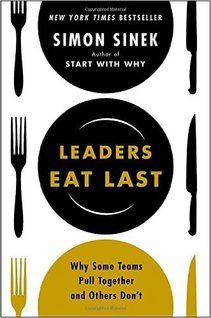 A few days ago I shared one of my passions, the next generation. I'm personally invested because I've got 2 kids, and I'm professionally invested because I spent almost 9 years in student ministry. One of my dreams as a new pastor is to see our sanctuary and property filled with kids running around and young parents chasing after them. But that's not all. As I've driven around our area my heart has been burdened by the number of 55+ communities around us. God's dream isn't just for one age group to be together, but for all. The Gospel's message is for everyone, and Gospel community involves everyone from 1 to 101. That's why I've embraced and loved the word multigenerational--bringing together people from extremely different backgrounds just by the year they were born into a community that's beyond friendship, it's family. So many times when a church wants to focus on one age group, others are left wanting and neglected. Sadly when this happens a church doesn't become a multigenerational family, it becomes congregations within congregations (young vs. old, contemporary vs. traditional, three-piece suits vs. Skinny Jeans), and it disrupts the unity of the Body that the New Testament emphasizes over and over again. I want to give 7 ways that a church can become a truly multigenerational family. 1. Invest in Next Generation ministry - Investing in these ministries (birth-young adulthood) is more than providing a budget item or space, it's an intentional effort to champion and support these ministries. Investing in them includes recruiting and developing volunteers, promotion during worship services, and inclusion in the church as a whole. Investing also includes facility structures, including safety/security, cleanliness, and accessibility (signage is huge, so is having key people to help guests). 2. Develop Pathways for Assimilation - Are there ways for people, regardless of age, to assimilate into the membership and involvement? Introducing a Prospective/New Member Orientation can help with the front door of assimilation, but beyond that are there ways to involve in small groups, opportunities to use gifts/abilities to serve, and accountability to keep the back door closed? Developing a Multigenerational mindset means asking the question "Can anyone, regardless of age, find a place here to belong?" 3. Reflect Titus 2 - One of the coolest things I learned about Millennials in my doctoral work and beyond is that this is a generation that craves mentoring. Titus 2 gives us a great pattern for older investing in younger. Younger are able to learn from the wisdom and experience of those older, and the older can be incredibly valuable to helping build a legacy. 4. Connect Generations - I love separate spaces for youth and children's ministries, because it gives them "their place" where they can learn, worship, share, and grow in their own way. Sadly what I've seen many times is that this turns into isolation--where kids and teenagers never cross paths with adults (and vice versa). I served in a church 7 years and I couldn't count how many times people would say "oh what a lovely space for the youth, I never knew this was here." Connecting generations means inviting them into each other's space. It can be a formal fellowship or it can be as easy as a middle school class inviting the widows to join them for Bible study. When we bring generations together, we're tearing down the walls that too often separate us in churches. 5. Encourage Deference > Preference - We all have preferences over what we like in music, style, fashion, sermon length, and seating arrangement. When Paul talks about his liberty in Christ, he doesn't use it to flaunt or brag about what he can do, instead he points to deference to others. So when we don't like the music or think the service should be oriented towards _____, we need to put our preferences on the back burner and instead defer to someone else. This attitude of humility, considering others more than ourselves, lets each generation see how the others flourish and thrive. So sing songs you don't know (even if they repeat, because the angels will sing Holy, Holy, Holy forever!), let a teenager talk about Christian rap, and don't roll your eyes when the Southern Gospel quartet gets up to sing. 6. Community Engagement - "If you build it, they will come" worked great for Kevin Costner, but not for churches. Becoming a multigenerational family means finding ways to be involved in the community. Contact your local schools to see if there are ways to serve as volunteers, set up a table at Open House, build relationships with retirement homes and senior centers, encourage members to coach Little League, connect with families at the pool or grocery store, and recognize the influence areas God has given you to engage people who don't know Jesus. 7. Listen - Leaders who charge all-in without listening are asking to step on a land mine. Listen well to your people, develop a vision that they will buy into. James gives us great wisdom that we should be quick to listen but slow to speak--and becoming multigenerational means that we're taking time to listen to the genuine, heart-felt concerns of people. It means we become a people who are willing to listen to each other to learn and grow, rather than a people who dismiss the other generations. When younger people learn the older ones have sacrificed and worked hard for what they have, they listen. And when older people hear the passion and enthusiasm for Christ the younger have, they cheer. It's a beautiful picture isn't it?
2 Comments
 It's surreal sitting in a Starbucks after my third week as a pastor. I'm so grateful to the wonderful folks at Emmanuel Baptist for their kindness, hospitality, and genuine enthusiasm for charting a new course in our journey of being faithful to Christ's call to make disciples. It's been exhausting, busy, challenging, and when you throw in being 14 hours away from Carrie and the boys, it's been somewhat lonely too. I'd say there's 7 big lessons I've learned about ministry in such a short time. 1. Listening > Talking - So many times we assume our ministry activity happens when we're preaching, teaching, praying, and discipling. In essence, the times our mouth is moving. And those are all extremely important things to do, but sometimes the best thing we can do is keep our trap shut and hear someone share their story. 2. Trust and Delegate - It's really hard to have hands-on leadership in every little detail, and pastors who do that tend to err on being micromanagers or control freaks. Because there are so many issues that need to be addressed, I've learned how important it is to delegate responsibilities and not be involved in every minute detail. With that delegation comes trust, when I have to let go of my authority to handle something, but still bear responsibility for it. That's tough. But if we don't do that, we're not living out Ephesians 4 to equip the saints for the work of ministry. 3. Proactive Scheduling - Time is a leader's most valuable, and nonrenewable, resource. Taking control of time and proactively scheduling is the only way to manage the numerous responsibilities (see #2) while maintaining priority. My iCal looks like a coloring book, but it's the only way to be in control of time, and not let time control me. 4. Sunday Sneaks Up - It's felt like once I had the week under control, I wake up and it's Sunday and back around we go! I know every pastor has a different style and practice, but I love working ahead on sermon preparation, and I've found that's been a great way to be ready for when Sunday (inevitably) rolls around. Everyone has a different time frame, but if you can stay 4-6 weeks ahead on message preparation you'll find a cushion for when Sunday gets there much quicker! 5. People Aren't Projects or Interruptions - Speaking of #3... I was leaving in a hurry to go to a meeting across town when someone met me in the parking lot with "Hey pastor, do you have a minute?" One of the hardest lessons I've learned in ministry is that people aren't problems to be fixed or interruptions to be managed, they're people who God loves and who you love too. Seeing those as "God Moments" rather than interruptions changes everything. John Maxwell talked about it as "walking slowly down the halls" in 360 Leader, and there's so much truth to that imagery. 6. Time Away is Essential - God created a work/rest rhythm in Genesis 1 not because He needed it, but because we do. If you're a ministry leader and you're hitting the grind without any time off in a long while, you need to stop what you're doing and get some rest before it kills you or your ministry. I love being 25 minutes from the beach, and taking some time away to rest and hear the ocean waves has been exactly what my soul and body have needed. 7. Family is Priority #1 - I love our new church. I'm so excited about what God could be doing in our midst in the next few years and beyond. But the reality is they can find another pastor if I leave. The other reality is that Carrie cannot have another husband, and Sam & Gray cannot have another daddy. One thing I think that contributes to pastoral burnout is the imbalance between work and home, either they spend too much time at work and flame out at home, or they spend too much time at home and not enough at work and they fail to meet expectations. Have trusted people around you who can hold you accountable to keeping that balance strong. And boys, when you and mommy get here in a few days, we're gonna have fun at the beach!  The best way to tell if a leader is truly invested in their people is to look at what happens when they get to a buffet line. Does the leader push his way to the front or does he let others go ahead of him? What about their place in the line? Are they content with being in the middle or are they willing to go all the way to the back, and in the process get the cold leftovers and pimento cheese? That's the big question Sinek poses in the book Leaders Eat Last, which he observed while watching a Marine Corps meal--the officers waited until all the enlisted men had gone through to eat before they did. The message behind it was clear: the goal of a leader is to make sure those under their care are taken care of first. You can check out a really helpful review of the book here, and even though Sinek isn't writing from a Christian worldview, his book has several implications for Christ-like leadership. Sinek's major arguments come from a naturalistic worldview that looks at sacrificial leadership as a survival instinct, and points out the physiology of our body chemicals (Serotonin, Dopamine, Endorphins, and Oxytocin) and their role in shaping our social bonds and personal interactions. As believers, we recognize that our body chemistry and social interactions are part of God's design and what makes us unique as His image-bearers. 1. Christian leaders can set the thermostat - Leaders have the ability to shape the culture and environment they lead in. If a leader is poised, composed, and strategic, the environment is much less chaotic than a leader who lives by a "crisis of the week" mentality. Never underestimate how much people are looking to you as a leader, they will feed off your cues, both spoken and unspoken. 2. Christian leaders lead by sacrificial service - Jesus models this for us, and Paul shares in Philippians 2 the sacrificial servanthood of Christ, who emptied Himself to the point of a servant and died in our place on the cross. As leaders, we do not lead by barking orders from the back, we lead from the front. I remember one mission trip watching a youth pastor sitting under an umbrella telling his students what to do on a construction project. If you want to lead, be willing to work harder, longer, and right there with your people. 3. Christian leaders recognize the needs of others - When we lead, we're not setting our agenda, we're serving and meeting the needs of those around us. That's why we need to be flexible with how we build our time. The desperate man whose wife just left him can't wait for you to finish your sermon prep to talk, your response as a leader is to respond to the immediate needs. It's also important to make sure the long-range needs are met, which means your agenda as a leader becomes their agenda. 4. Christian leaders need to have the big picture in mind - Leadership isn't doing what Jack Welch at GE did, which was create a spirit of fear among managers and a roller coaster of performance. It instead looks like Costco, that recognizes the value of employees and making sure they can thrive at work by thriving at home. It's what I love about Southwest Airlines, their primary focus is their employees, because they know if they take care of their people they will take care of the customers. As a Christian leader, we need to keep the big picture in mind, looking ahead to what will make the most lasting impact. One question I ask often as a student pastor is "What do I want them to take with them when they graduate in 3/4/5/6/7 years?" That helps me frame everything we do in a way that equips them for living as Gospel witnesses. 5. Trust is the currency we lead with - Whenever we lead as Christian leaders, we're doing so in the crucible of relationships. Our effectiveness as a leader only goes as far as the depth, quality, and breadth of our relationships. The currency we spend in this is trust. As we develop relationships and build into people, they give us trust deposits. Occasionally we need to cash those deposits in to make a difficult decision, change, or navigate through the rhythm of conflict resolution. These withdrawals are a necessary element of leadership, and the more people trust us, the more we're able to lead, inspire, and cast vision. The CEO at Charles Schwab in a recent interview shared about one of his failures in college. In one of his last classes, he spent hours memorizing formulas, calculations, and business principles, only to fail the class. The reason? The final exam was a blank sheet of paper for them to answer one question: What's the name of the lady who cleans the building? For Bettinger, this was a reminder that the most important resource in business is human, it's the people who do the work and drive the brand and build a legacy. Perhaps the biggest takeaway for ministry is the simple and profound reminder that unless we are effectively engaged in relationships, we're not doing ministry.
Unlike many other organizations, relationships are the crucible where all ministry happens. When we are prepping sermons and Bible studies, we're doing it knowing who will be hearing it. When we make a hospital visit, we're not clinicians, we're dealing with the emotional toil of tragedy. And every time in youth ministry we plan an event, we're not making a checklist, we're working with the sacred trust of parents with their kids. It's impossible to disengage from relationships and be anything more than a talking head. I love what my friend Sam Rainer said about the importance of local, relational leadership, that the leadership we have among our people is a legacy that will long outlive our obituary. Jesus made a ministry out of the Dotties, the Twelve were on the fringe of proper society without any special gifting or natural ability, yet through His leadership and the Spirit's power the world was turned upside down within a generation. Our churches and ministries are full of Dotties. They're the awkward middle schooler struggling to fit in, the unemployed dad who can't find a break, the recovering addict with an ankle bracelet, and the lady who walks in pregnant without a ring. It can be so easy in ministry to focus our time and energy on the people like us, the "safe people," the ones we spend time with and not have to wonder what people are thinking. But one of the ways we build our relationship capital in ministry is to spend time ministering to, serving, and loving the Dotties around us. Take a long look around the people God has called you to live among, serve, love, and shepherd. Are there any Dotties out there? If so, be intentional about seeking them out to give them the graceful touch of Christ who came to seek and save the lost, and who told us that whatever we do for the least of these, we're doing for Him. This is taken from the concept for my next untitled book to be released by Rainer Publishing later this year, designed to help ministry leaders get off to a good start. |
Scott M. DouglasA blog about leadership and the lasting legacy of family ministry. Archives
August 2023
Categories
All
|
 RSS Feed
RSS Feed



